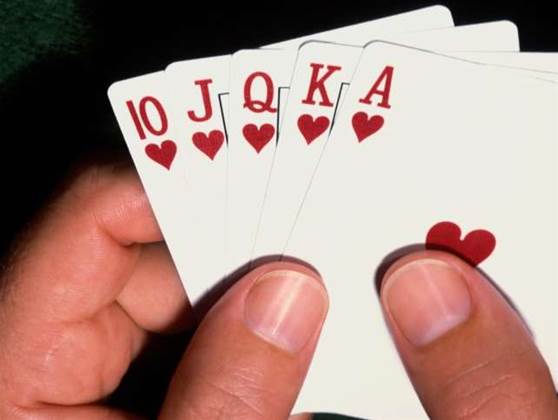The Communications Law Centre (CLC) has called for a tightening of Australian laws to more effectively prohibit access to online casino-style games like poker, blackjack and roulette.

In a submission to the parliamentary inquiry on the prevalence of interactive and online gambling, the CLC said technology was enabling underaged and problem gamblers to place bets.
Australia's current Interactive Gambling Act 2001 (IGA) regulated online wagering services, where customers bet on events like horse racing and sports.
The Act prohibited online casino-style gambling, including table games and poker machines, as well as banning overseas companies from providing gaming services to Australians.
But it was "largely ineffective" in prohibiting international gambling sites, the CLC found, as it provided "no meaningful way of enforcement".
"The prohibition of online Australian interactive gambling forces Australians to use offshore sites, many of which have poor harm minimisation features and unscrupulous business practices," it wrote.
"CLC considers that the prohibition of international gambling sites has been largely ineffective as the rate of Australian access to such sites continues to increase over time."
Despite Australian laws, sites like Kahnawake, Canada-based All Slots Online Casino and Gibraltarian 888 and Casino.com openly invited Australians to participate in their casino-style games.
 |
| Casino.com's Australian page. |
"Play the Aussie favourite Texas Holdem and receive a generous Welcome Bonus of up to $400! Be part of the Australian poker community and join the action with thousands of players from all over Australia."
All Slots' Australian page invited online money transfers using the Neteller service, which it said was "available in all European countries as well as Australia and Japan".
In its terms and conditions, however, All Slots stated: "You are solely responsible for ascertaining whether it is legal in your jurisdiction to play any of the games in the Casinos
"We do not intend to enable you to contravene applicable law, and we are not responsible for any illegal or unauthorised use of the Casinos by you."
The CLC argued that casino-style websites posed "a significant risk to the financial and mental state of problem gamblers and ... of social harm".
It recommended that the Government deny Australians access to overseas gambling sites by blocking these sites in Australian jurisdictions, or prohibiting the transfer of funds to such sites.
Read on to Page 2 for more submissions and recommendations.
Wagering service providers Betfair, Betchoice and the Australian Internet Bookmakers Association (AIBA) also made submissions to the inquiry, which was conducted by the Senate Community Affairs Committee.
The Committee was tasked with the inquiry on 24 June and was expected to report by 2 September. However, it said this week that it was "unable to provide a comprehensive report at this time".
The AIBA highlighted the Act's distinction between online wagering and 'internet gaming', which included simulated casino games and poker machines.
"There is a different risk profile for each form of gambling," the AIBA wrote. "For wagering, the internet is merely a communication channel."
It argued that ISP-level blocking of international gaming sites was unfeasible, and payment blocking was difficult to implement.
Online poker sites UltimateBet, Absolute Poker, PartyPoker, PokerStars and Full Tilt Poker were among 2602 links appearing on ACMA's 11 March 2009 blacklist, according to whistleblower site WikiLeaks.
But prohibition of online gaming was not the appropriate policy response, the AIBA wrote.
"The Act [IGA] has been worse than useless ... the Act is unenforceable internationally, and so operators outside of Australia have ignored it.
"The sensible response is to regulate online gaming," the ABIA wrote. "Australians would then at least have the option of playing with online sites under Australian responsible gambling controls."
Compared to offline gambling, the internet offered "a number of advantages in the delivery of responsible gambling strategies", including access to betting history and counselling information, the ABIA wrote.
The association also highlighted the potentials of "pre-commitment" facilities that would allow players to set deposit and loss limits that would remain in place for a specified period.
Pre-commitment was also touted by smartcard technology vendor Regis Controls which, in its parliamentary submission, stated that a smartcard could identify, authenticate and monitor players both on and offline.
Using Regis technology, players would be required to apply for a smartcard with proof of age and identity.
Each player would be issued with a daily, fortnightly or monthly gambling limit following processes similar to a credit check, and in accordance with Government-established guidelines.
"The cards would need to be the only method for anyone to access online or interactive television or mobile phone gambling provider sites, including betting shops and pokies machines," the company wrote.
Julia Gillard, leader of the Australian Labor Party, yesterday made headway into forming a minority Government by promising to implement pre-commitment technology on every Australian Poker Machine by 2014.
In a separate parliamentary submission, the Gambling and Public Health Alliance International recommended that the existing Act be scrutinised and amended from a global perspective.
"Interactive and online gambling is a global activity provided by global businesses, some of which seek to avoid consumer protection obligations, in the pursuit of 'easy money'," the alliance wrote.
"This concern is not unique to Australia, and needs to be addressed through international cooperation.
"The Alliance believes that Australia, along with New Zealand, is well placed at government level to provide leadership in seeking international policies and protocols associated with online and interactive gambling."



.png&h=140&w=231&c=1&s=0)

_(22).jpg&h=140&w=231&c=1&s=0)



_(26).jpg&w=100&c=1&s=0)

 iTnews Executive Retreat - Security Leaders Edition
iTnews Executive Retreat - Security Leaders Edition












_(1).jpg&h=140&w=231&c=1&s=0)



